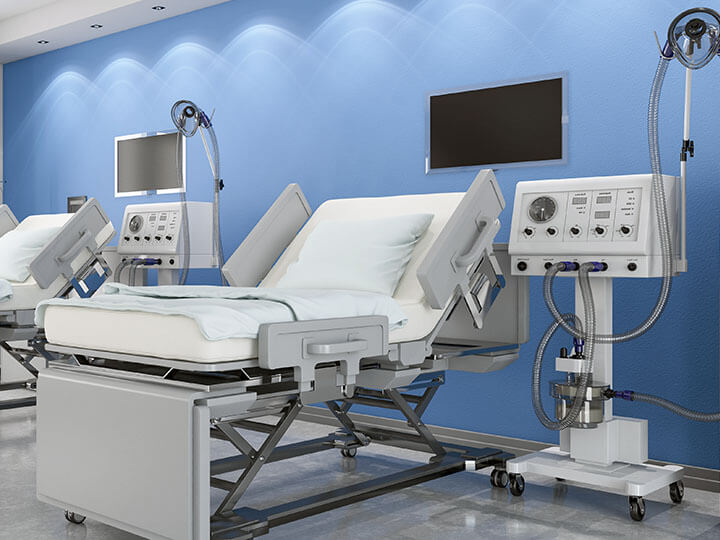Why Now Is the Right Time to Enter Japan’s Medical Device Market

27 Nov 2025
Insights into regulatory pathways, case studies, and strategies for global manufacturers entering Japan
Japan may be one of the most technologically advanced nations in the world, but when it comes to medical devices the door is wide open for foreign companies. With an aging population, high healthcare standards, and a government eager to encourage innovation, Japan is actively welcoming overseas medtech players to bring fresh solutions to its market.
For manufacturers in the U.S., Europe, and across Asia, that makes Japan a proving ground that can enhance global credibility. Here’s why the opportunity is so strong, and how foreign companies are already making their mark.
Why Japan Wants Foreign MedTech
Unlike some regions where local protectionism makes entry difficult, Japan is sending strong signals of openness. There are several reasons behind this shift:
Improving healthcare quality through innovation. Japan is seeking out advanced technologies, especially AI-enabled devices, IoT-based tools, and digital health platforms, that can improve patient outcomes and streamline medical practices.
Boosting international competitiveness. Japan’s domestic medtech market is mature. By inviting foreign competition, policymakers hope to spark innovation among local firms and ensure Japanese products remain competitive globally.
Controlling costs in an aging society. With more than 28% of the population over 65, Japan faces soaring healthcare costs. Foreign entrants that bring cost-effective devices offer a way to maintain high-quality care without breaking the system’s budget.
Supporting global collaboration. The government is encouraging both inbound and outbound medical business. In other words, they want Japanese companies to expand abroad while simultaneously making it easier for overseas firms to establish themselves in Japan.
Regulatory reform. Japan’s Pharmaceuticals and Medical Devices Agency (PMDA) has been streamlining approval pathways, making them more transparent and predictable for foreign companies. For innovative technologies, this can mean faster time-to-market than in the past.
What’s Working Today
Several international companies have already demonstrated how to navigate this opportunity successfully:
One device maker from Singapore introduced an inhalation device designed for children and the elderly. By partnering with a Japanese imaging company and working closely with JETRO and Enterprise Singapore, the company secured regulatory approvals and positioned for a 2025 launch. Their device integrates LED indicators and a mobile app, showing how foreign firms can combine innovation with localized partnerships.
U.S. medical device companies often leverage Food and Drug Administration (FDA) clearance as a foundation before adapting to PMDA requirements. By providing Japanese-language manuals, after-sales support, and localized training, these companies have built credibility and trust. AI-driven health tools in particular are seeing streamlined reviews, reflecting Japan’s interest in next-generation digital healthcare.
Some firms have succeeded by designing compact, affordable models that fit Japan’s hospital environment. They go beyond selling products—offering training and educational support for clinicians. This service-plus-product model resonates strongly in Japan, where long-term relationships and professional development are highly valued.
Lessons for Manufacturers
So, what can other medical device makers learn from these examples?
Localization is non-negotiable. From regulatory alignment to language translation and cultural nuance, companies that tailor their approach to Japan’s unique context are the ones succeeding.
Partnerships accelerate success. Aligning with Japanese CROs, distributors, or research institutions can smooth regulatory approvals and establish credibility faster than going it alone.
Education matters. Japanese clinicians and institutions expect thorough product training. Companies that offer education alongside their devices build deeper trust and adoption.
Global validation flows both ways. Success in Japan can actually strengthen a manufacturer’s credibility worldwide. A product that passes Japan’s demanding regulatory and quality expectations carries weight in other markets.
MDSAP certification can simplify QMS compliance. Since Japan is a participating country in the Medical Device Single Audit Program (MDSAP), obtaining MDSAP certification can serve as a strong basis for demonstrating QMS compliance during manufacturing and marketing applications in Japan. For many manufacturers, this can significantly streamline quality system assessments under Ministerial Ordinance No. 169, and in many cases reducing them to a document-based review rather than a full audit. Incorporating MDSAP into your regulatory strategy can save both time and resources while improving approval predictability.
The Bigger Picture
For foreign manufacturers, Japan represents both challenge and opportunity. Yes, the market requires rigorous compliance, thoughtful localization, and strong partnerships. But the rewards are significant: access to one of the world’s largest healthcare economies, government support for innovative solutions, and the chance to enhance global standing.
For Japanese healthcare, the benefits are equally clear. Foreign entrants are helping improve patient care, bring down costs, and inspire domestic innovation. It’s a mutually beneficial relationship that is likely to grow stronger in the years ahead.
Final Takeaway
If you’re a medical device manufacturer considering expansion, Japan should be near the top of your list. The market is ready for new solutions, the regulatory environment is becoming more accessible, and the success stories are already piling up.
The key isn’t just to enter Japan, it’s to do so strategically. With the right preparation, partnerships, and commitment to compliance, Japan can become a cornerstone of your global growth strategy.

